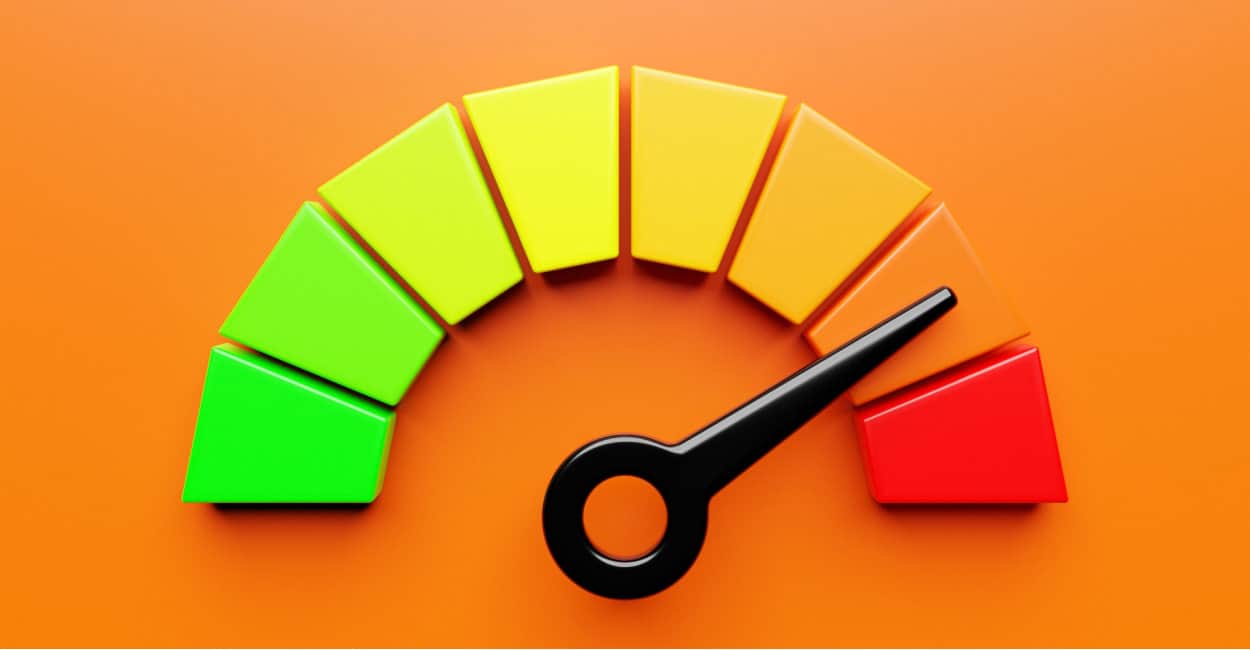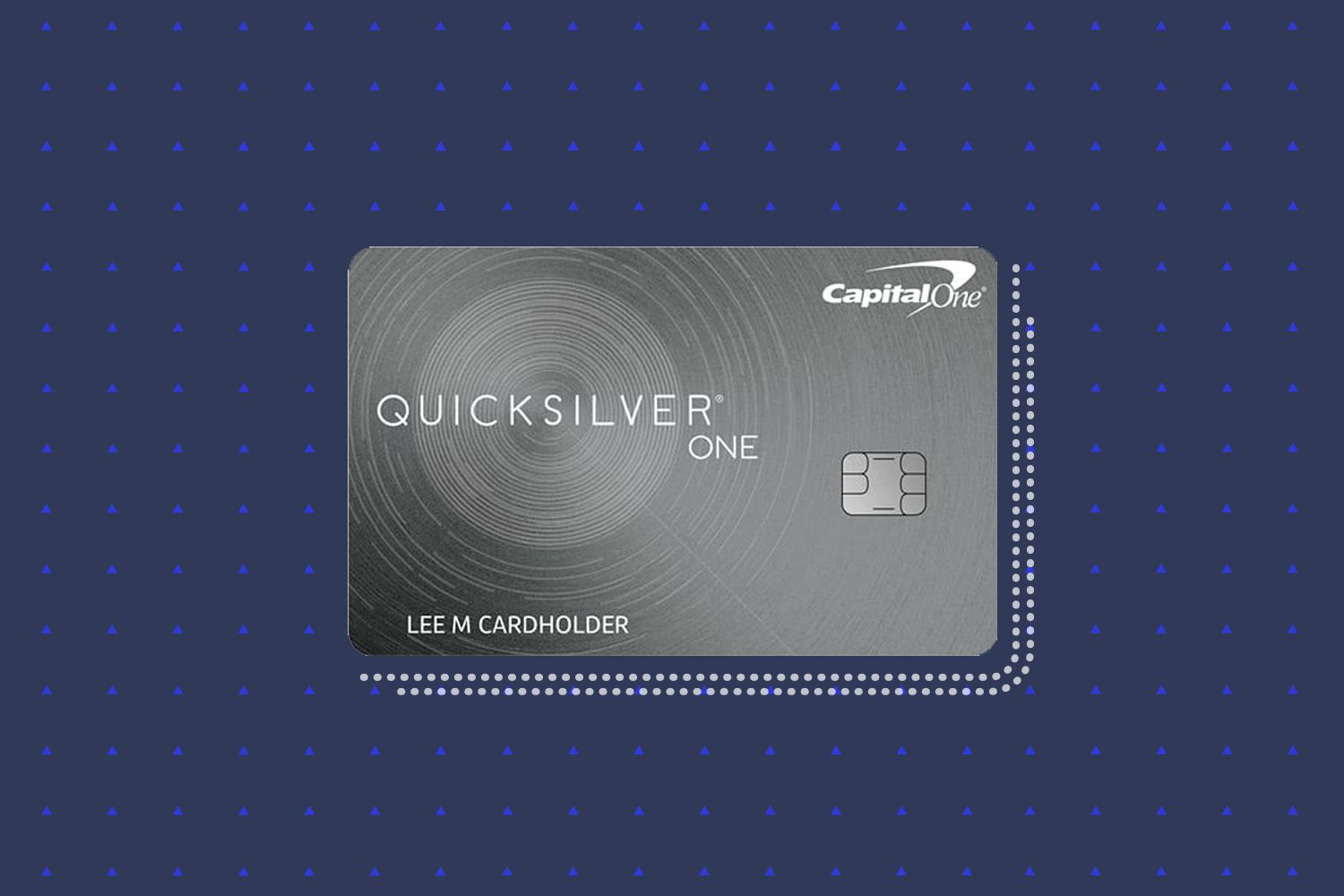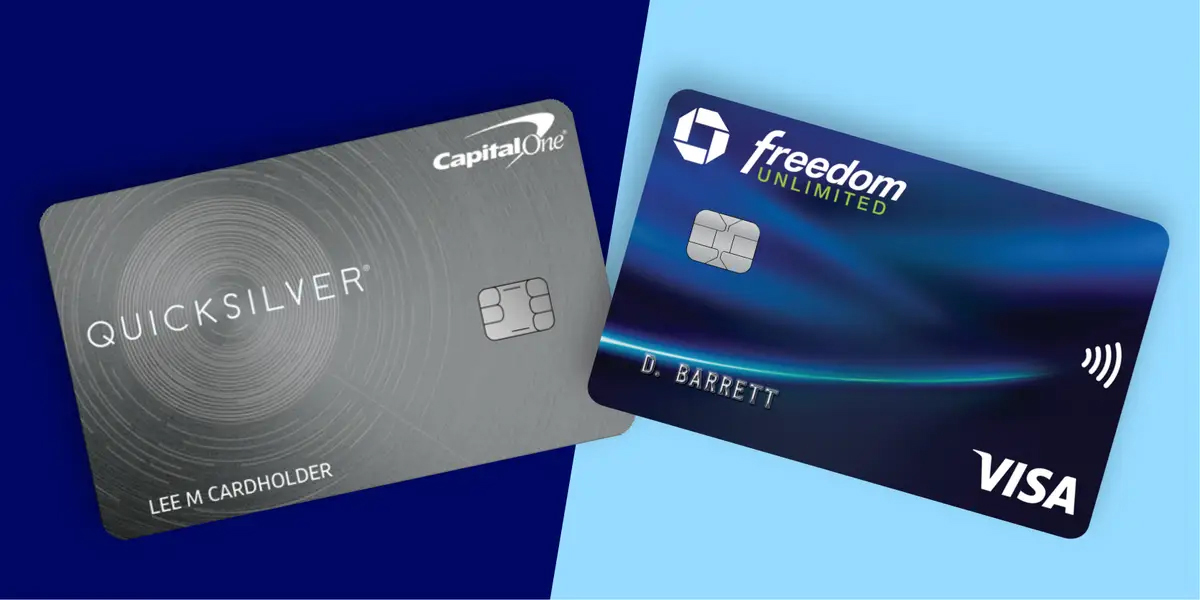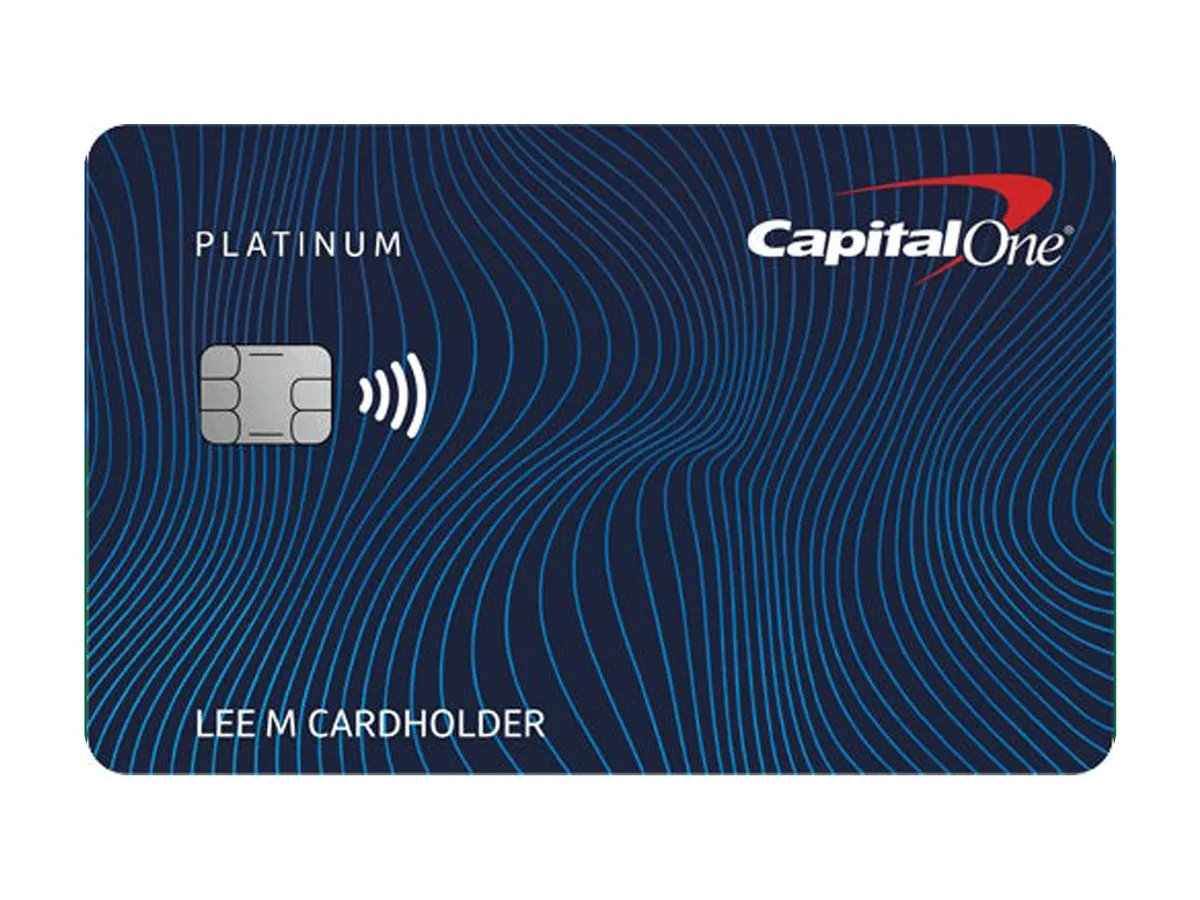Home>Finance>What Is The Highest Credit Limit For Credit One?


Finance
What Is The Highest Credit Limit For Credit One?
Published: March 5, 2024
Find out the maximum credit limit offered by Credit One for your financial needs. Explore the highest credit limits available and make informed decisions for your finances.
(Many of the links in this article redirect to a specific reviewed product. Your purchase of these products through affiliate links helps to generate commission for LiveWell, at no extra cost. Learn more)
Table of Contents
Introduction
Understanding the concept of credit limits is crucial for anyone navigating the world of personal finance and credit cards. A credit limit represents the maximum amount of money that a financial institution is willing to extend to a cardholder. This limit dictates the highest balance a cardholder can carry on their credit card at any given time. It is a fundamental aspect of responsible credit card usage and plays a pivotal role in determining an individual's purchasing power and creditworthiness.
Credit One Bank is a prominent player in the credit card industry, offering a range of credit cards tailored to different financial needs and credit profiles. As with any credit card issuer, Credit One Bank sets specific credit limits for its cardholders based on various factors, including the individual's credit history, income, and overall financial situation. Understanding the factors that influence credit limits and knowing how to manage and potentially increase them can significantly impact one's financial flexibility and credit score.
In this comprehensive guide, we will delve into the intricacies of credit limits, explore Credit One credit cards, discuss the factors that influence credit limits, and uncover the highest credit limit available for Credit One cardholders. Additionally, we will provide valuable insights and tips on how to potentially increase credit limits, empowering individuals to make informed decisions and optimize their credit card usage. Let's embark on this enlightening journey to unravel the mysteries of credit limits and their significance in the realm of personal finance.
Understanding Credit Limits
Credit limits serve as a safeguard for both cardholders and credit card issuers. They act as a boundary, delineating the maximum amount of credit that can be utilized at any given time. This limit is predetermined by the credit card issuer and is based on several factors, including the cardholder’s credit history, income, and overall financial health. It is important to note that credit limits are not arbitrary; they are meticulously calculated to mitigate the risk of default while providing cardholders with a reasonable line of credit.
For cardholders, understanding their credit limits is essential for managing their finances effectively. Exceeding the credit limit can result in penalties, fees, and potential damage to one’s credit score. On the other hand, staying well below the credit limit and utilizing credit responsibly can have a positive impact on one’s credit score and financial well-being.
Moreover, credit limits play a pivotal role in determining a cardholder’s credit utilization ratio, which is the percentage of available credit being utilized. This ratio is a significant factor in credit scoring models and can influence an individual’s creditworthiness. Maintaining a low credit utilization ratio, typically below 30%, demonstrates responsible credit usage and can contribute to a positive credit profile.
Understanding the implications of credit limits empowers individuals to make informed decisions about their spending and borrowing habits. It encourages financial discipline and responsible credit management, fostering a healthy financial future. As we navigate the realm of credit limits, let’s delve deeper into the specific credit cards offered by Credit One Bank and the unique features they bring to the table.
Credit One Credit Cards
Credit One Bank offers a diverse array of credit cards designed to cater to varying financial needs and credit profiles. These cards are tailored to provide opportunities for individuals to build or rebuild their credit while offering features that align with their specific requirements. The credit cards offered by Credit One Bank may include rewards programs, cash back incentives, and competitive interest rates, making them appealing options for a wide range of consumers.
One notable feature of Credit One credit cards is the potential for individuals with less-than-perfect credit to qualify. This inclusivity sets Credit One Bank apart, as it extends opportunities to individuals who may face challenges in obtaining credit from traditional financial institutions. By responsibly managing a Credit One credit card, cardholders can work towards improving their creditworthiness and financial standing over time.
Furthermore, some Credit One credit cards may offer benefits such as free online access to the cardholder’s Experian credit score, providing valuable insights into their credit health. Additionally, certain cards may feature customizable account notifications and the ability to choose the card’s payment due date, empowering cardholders to manage their accounts proactively and conveniently.
It is important for individuals considering a Credit One credit card to thoroughly review the specific terms, benefits, and fees associated with each card to determine the best fit for their financial needs. By understanding the offerings and features of Credit One credit cards, individuals can make informed decisions when selecting a card that aligns with their financial goals and aspirations.
Factors Affecting Credit Limits
Credit limits are not arbitrarily assigned; rather, they are determined based on a combination of factors that provide insight into an individual’s creditworthiness and ability to manage credit responsibly. Understanding the key factors that influence credit limits is essential for individuals seeking to optimize their credit utilization and overall financial well-being.
1. Credit History: One of the primary factors that influence credit limits is an individual’s credit history. Credit card issuers assess the individual’s credit report to evaluate their past credit usage, payment history, and overall credit management. A positive credit history, characterized by timely payments and responsible credit utilization, is likely to result in a higher credit limit, reflecting the individual’s demonstrated ability to handle credit effectively.
2. Income: The income level of an individual is a significant determinant of their credit limit. A higher income generally indicates greater financial capacity to manage credit obligations, potentially leading to a higher credit limit. Card issuers consider an individual’s income as a measure of their ability to repay any credit extended to them.
3. Debt-to-Income Ratio: The debt-to-income ratio, which compares an individual’s monthly debt payments to their gross monthly income, is another crucial factor. A lower debt-to-income ratio signals that the individual has sufficient income to manage additional credit responsibly, potentially resulting in a higher credit limit.
4. Employment Status: The stability of an individual’s employment can impact their credit limit. A steady employment history and a secure job position may positively influence the credit limit assigned to the individual, as it reflects a reliable source of income for managing credit obligations.
5. Overall Financial Health: Card issuers may consider the individual’s overall financial health, including assets, savings, and other financial indicators, when determining credit limits. A strong financial profile may contribute to a more favorable credit limit, reflecting the individual’s comprehensive financial stability.
By comprehending the factors that underpin credit limit determinations, individuals can strategically manage their finances and credit usage to potentially influence and optimize their credit limits. As we explore the highest credit limit available for Credit One cardholders, it is essential to recognize the interplay of these factors in shaping credit limits and financial opportunities.
Highest Credit Limit for Credit One Card
As with any credit card issuer, the highest credit limit available for Credit One cardholders is influenced by a variety of factors, including the individual’s credit history, income, and overall financial situation. While specific credit limits can vary widely based on these factors, Credit One Bank aims to provide cardholders with competitive credit limits that align with their financial capabilities and creditworthiness.
It is important to note that the highest credit limit available for Credit One cardholders may not be explicitly disclosed by the issuer, as credit limits are individually determined for each cardholder based on their unique financial profile. Cardholders may receive their credit limit information upon approval of their credit card application, and this limit can be adjusted over time based on the individual’s credit management and financial progress.
Individuals seeking to ascertain the highest credit limit available for a Credit One card can engage in proactive credit management practices to potentially influence their credit limit. By maintaining a positive credit history, managing credit responsibly, and demonstrating an ability to handle credit obligations effectively, cardholders may position themselves for credit limit increases over time.
It is important for cardholders to regularly review their credit card terms and conditions, as well as to stay informed about credit limit adjustments that may occur based on their financial behavior and creditworthiness. By staying attuned to their credit limit and engaging in prudent credit management, cardholders can optimize their credit utilization and financial flexibility.
While the specific highest credit limit for Credit One cards may vary for each individual, the issuer is committed to providing cardholders with competitive credit limits that reflect their financial capacity and credit management capabilities. By understanding the factors that influence credit limits and actively managing their credit, individuals can work towards maximizing their credit opportunities and financial well-being.
Tips for Increasing Credit Limits
Increasing a credit limit can enhance an individual’s financial flexibility and potentially improve their credit utilization ratio, provided it is managed responsibly. While specific credit limit increase strategies may vary among credit card issuers, there are general tips that individuals can consider when seeking to elevate their credit limits, including those associated with Credit One cards.
1. Monitor and Improve Credit Score: Maintaining a healthy credit score is paramount when aiming to increase a credit limit. Consistently monitoring one’s credit report, addressing any discrepancies, and making timely payments can contribute to a positive credit score, which may position the individual favorably for a credit limit increase.
2. Showcase Responsible Credit Usage: Demonstrating responsible credit usage by consistently paying off balances, avoiding carrying high balances, and making timely payments showcases financial discipline. This can signal to credit card issuers, including Credit One Bank, that the individual is capable of managing higher credit limits.
3. Update Income Information: Providing updated income information to the credit card issuer, especially if there has been a significant increase in income, can potentially support a case for a credit limit increase. A higher income level may indicate greater capacity to manage a higher credit limit responsibly.
4. Engage in Regular Communication: Proactively communicating with the credit card issuer, such as Credit One Bank, to express responsible credit management and a desire for a higher credit limit can be beneficial. Some issuers may consider such requests and evaluate the individual’s creditworthiness and financial progress.
5. Request a Credit Limit Increase: Many credit card issuers, including Credit One Bank, allow cardholders to request a credit limit increase. This can typically be done through the issuer’s online portal or by contacting customer service. It is important to make such requests judiciously and with a solid credit management history.
By implementing these strategies and maintaining a proactive approach to credit management, individuals can potentially position themselves for credit limit increases. It is essential to exercise financial discipline and responsible credit usage to demonstrate creditworthiness and enhance the likelihood of a favorable credit limit adjustment.
Conclusion
Understanding credit limits and their impact on personal finance is a crucial aspect of responsible credit card usage. Credit One Bank, a prominent credit card issuer, offers a range of credit cards tailored to diverse financial needs and credit profiles. These cards provide opportunities for individuals to build or rebuild their credit while offering features such as rewards programs and cash back incentives.
Factors influencing credit limits, including credit history, income, and overall financial health, play a pivotal role in determining the highest credit limit available for Credit One cardholders. While the specific highest credit limit may vary for each individual, Credit One Bank is committed to providing competitive credit limits that align with cardholders’ financial capabilities and creditworthiness.
Moreover, individuals can take proactive steps to potentially increase their credit limits by monitoring and improving their credit scores, showcasing responsible credit usage, updating income information, engaging in regular communication with the issuer, and judiciously requesting credit limit increases. By implementing these strategies and maintaining financial discipline, individuals can position themselves for enhanced financial flexibility and credit opportunities.
In conclusion, the intricacies of credit limits, the unique features of Credit One credit cards, and the strategies for potentially increasing credit limits collectively underscore the significance of informed credit management. By empowering individuals with knowledge and insights, they can navigate the realm of credit limits with confidence, optimize their credit utilization, and work towards achieving their financial goals.














